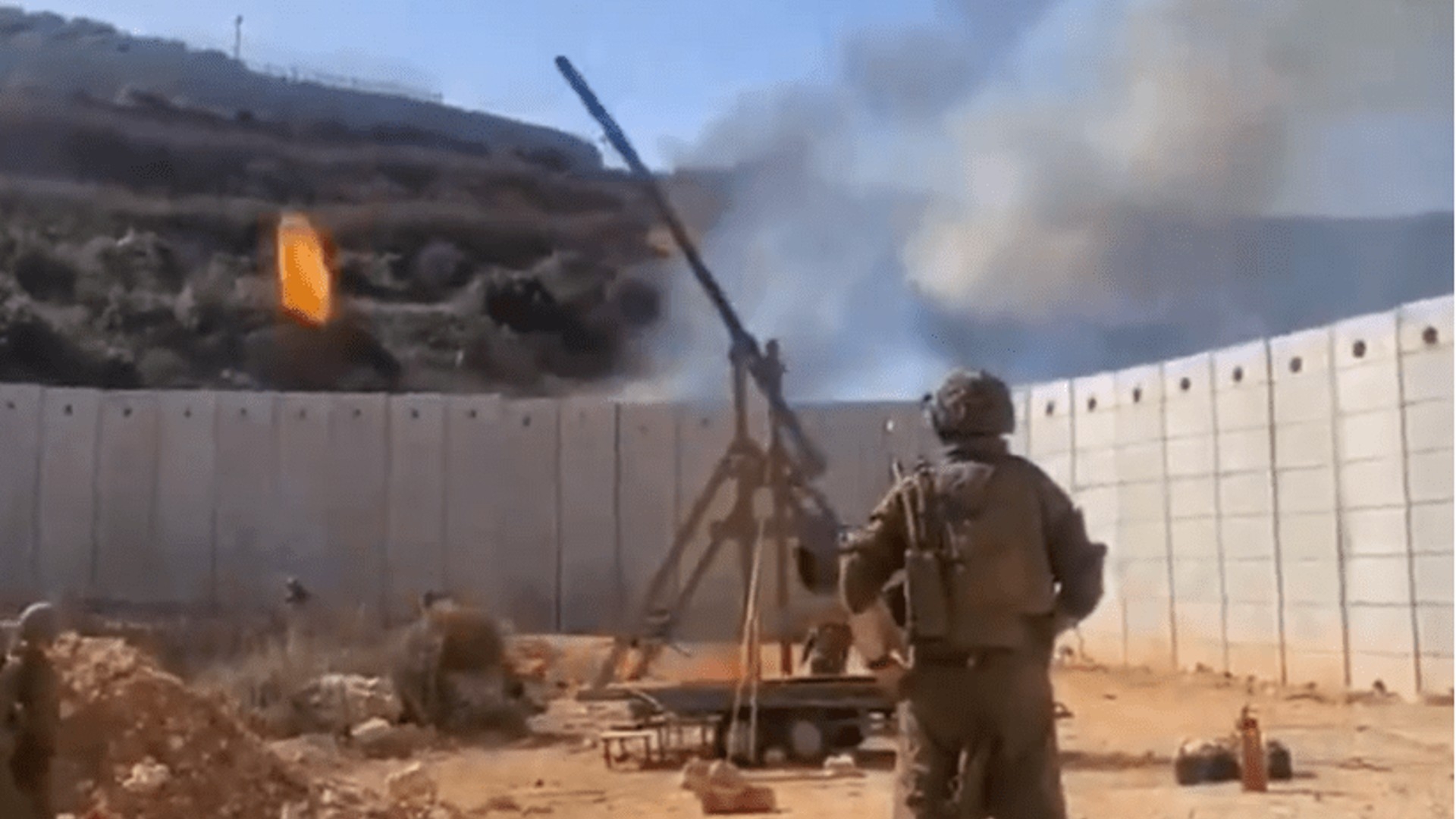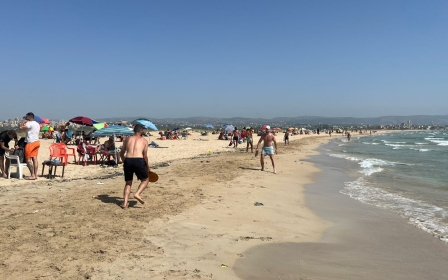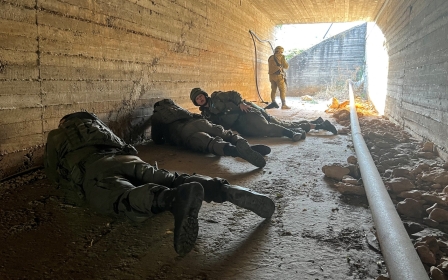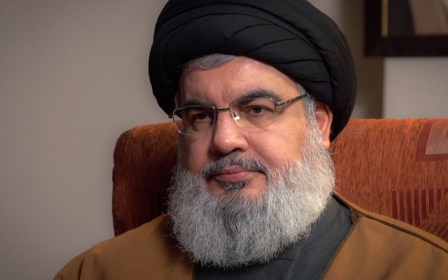Israel uses medieval trebuchet weapon to ignite Lebanese bushes

Israeli soldiers were filmed firing a trebuchet, a lever to throw projectiles used during ancient and mediaeval warfare, along the Lebanese border.
Footage circulated on social media showed troops launching incendiaries across the border using a trebuchet, in an attempt to burn Lebanese vegetation and thickets.
The Israeli army confirmed on Thursday that the footage was genuine, but said the weapon would not be used widely.
"This is a local initiative and not a tool that has come into widespread use," the military said in a statement.
"The area on the Lebanese border is characterised by boulders, thickets, and dense thorn vegetation, which poses a challenge to the IDF forces deployed in defence."
New MEE newsletter: Jerusalem Dispatch
Sign up to get the latest insights and analysis on Israel-Palestine, alongside Turkey Unpacked and other MEE newsletters
The trebuchet first appeared in China in the fourth century BCE, with the ability to throw projectiles further than earlier forms of artillery. It could also carry and launch heavier projectiles than standard catapults.
It lost its relevance in the 15th century with the advent of gunpowder artillery.
Israeli media suggested that launching projectiles into Lebanon was aimed at exposing Hezbollah fighters using the dense foliage as cover in the area. It could also be in preparation for a ground invasion.
Since the beginning of hostilities along the Lebanese border, ongoing since the start of Israel's war on Gaza in October 2023, Israeli troops have reportedly used Molotov cocktails, incendiary drones, and white phosphorous to set bushes in Lebanon on fire.
Footage circulating on social media shows Israeli soldiers using a trebuchet to launch incendiaries at Lebanon. pic.twitter.com/PYMyCZcOWM
— Emanuel (Mannie) Fabian (@manniefabian) June 13, 2024
Israeli forces have unlawfully dropped white phosphorus munitions on densely populated areas in southern Lebanon, Human Rights Watch warned recently.
Lebanon faces high risks of wildfires due to Israeli attacks, mainly due to the use of white phosphorous, according to a report in L'Orient Today.
Wildfires broke out in several southern villages last month, following artillery shelling and white phosphorus attacks, the report said.
Northern Israel also experienced intense forest fires following a surge of rocket and drone strikes from Lebanon.
On Wednesday, Israeli air strikes hit a convoy of trucks in Lebanon’s Hermel region near the border with Syria, killing several people. It was the northernmost strike on Lebanon since the war began.
Middle East Eye delivers independent and unrivalled coverage and analysis of the Middle East, North Africa and beyond. To learn more about republishing this content and the associated fees, please fill out this form. More about MEE can be found here.




